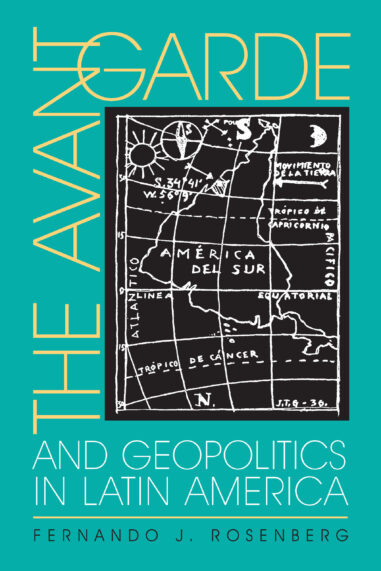

Paperback $50.00
Also available in Kindle
Request Exam or Desk Copy. Request Review Copy
The Avant-Garde and Geopolitics in Latin America
Rosenberg offers an inspired, necessary rereading of Latin America's avant-gardes as a self-aware negotiation with the expanding geopolitics of their time. Through agile analyses of work by key vanguard writers and in spirited dialogue with present critical debates, he also builds a compelling case for the avant-gardes' resilient import for current discussions of the global dynamics of cultural production and their anticipatory challenge to the putative modern/postmodern divide.

